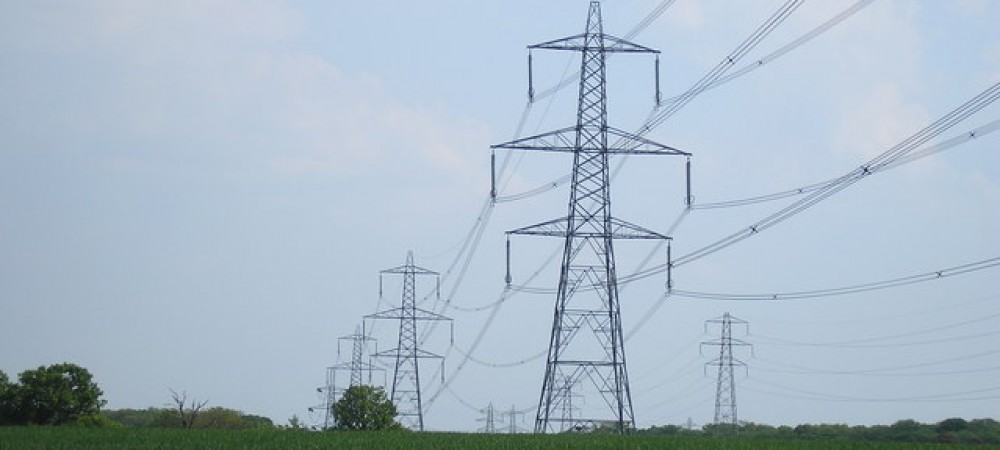Your chance of surviving an EMP disaster rises dramatically when disaster preparations include a larger community. The larger that community, the better its chances of successfully defending itself and rebuilding. The trouble is, it is hard to convince people of the danger to the point that they are willing to spend what it takes to prepare. If only one person in a hundred is willing to do so, it is hard to gather these scattered few. Even if they found one another, there is the difficulty of coordinating their efforts. Who would do the work? Who would pay for things? How would decisions be made?
It seems to me that the best solution is for wealthy entrepreneurs to set up survival communities organized as companies. Let us call such a person John. Before a crisis, John gives offers of employment to people he wishes to recruit into his community. The recruits start work at the moment an EMP occurs, and are paid in food which John has stored in hidden, defensible warehouses. The jobs the employees do are related to survival and rebuilding: defense, farming, infrastructure repair. Since the employees pay for nothing and have no obligations prior to a disaster, it is easy to recruit them. Since no money changes hands, the company is an abstraction until an EMP occurs. The fortified warehouse and the food and supplies inside it are John’s personal property.
Let us call the company the Corps, and call the employees “corpsmen.” John recruits corpsmen living near his warehouse to serve as hosts for other corpsmen (who live in the hosts’ houses or camp out in their fields), so in a disaster the corpsmen move to and defend a well-defined neighborhood. Ideally this neighborhood is rural, so it is easier to defend and provides plenty of land for growing crops.
The well-insulated warehouse (perhaps 6,000 ft2 with 15 feet of headroom) is fortified by an 8-foot high encircling berm which protects not only the warehouse but also the compound from small arms fire. One or two hundred corpsmen live in the warehouse or in tents in the compound in order to safeguard it, should raiders breach the neighborhood defensive perimeter. The warehouse uses solar energy for refrigeration to extend the shelf life of stored foods. It also stores seed and includes a Faraday cage room to store solar panels and other sensitive electronic supplies.
I imagine such a community sized to employ and feed up to 600 people, including 150 children (age 0-12). The 450 adults would be split into three or more groups that would be engaged in farming or providing neighborhood security. There is nothing magic about this number, but for any one group to exceed 150 adults might weaken group cohesion and allow strangers to infiltrate.

*** Even if they found one another, there is the difficulty of coordinating their efforts. Who would do the work? Who would pay for things? How would decisions be made? ***
All of that is a problem, but there is one more which makes those look minor.
How do the people involved keep this a secret.
Today I saw a story with a throwaway line to the effect the US is now a Surveillance State which would be the envy of George Orwell. The individuals organizing this storage system would likely have drawn the attention of the Authorities because of the things they’d already said and the items they’d already purchased. Buying all that food would surely draw more attention. Government infiltration, drunken blabbing, and bitter divorces would be among the many possible ‘leak’ points.
Defense would be a challenging issue, especially in view of how militarized the police forces have become. Lots of local units now have their very own armored vehicles.
To summarize, the practical details would be formidable.
You don’t have to keep it a secret. In fact, the opposite is true. Imagine setting up a nonprofit Civil Defense organization for a town with the mission of preparing the town for a worst case scenario (such as loss of the power grid for a prolonged period)
I just published a book on this subject on July 4, 2013 (Prepping for a Suburban or Rural Community: Building a Civil Defense Plan for a Long-Term Catastrophe, $9.95 on my website http://www.CivilDefenseBook.com or Amazon.com)
I don’t mean this to sound like an ad, but there are other options that I think a lot of people have not considered.
Michael-
I read your book, and there is much to commend in it. However, I see several problems with your concept. The most serious is your expectation that most people will buy emergency food. If they don’t, then the democracy you advocate will arrange to have food taken from the “hoarders” and delivered to the “needy”. The result is that food will run out before the harvest, and everyone will starve.
You insist that your town will uphold all state laws, but what if the governor sends the National Guard to your town to collect food to bring to the state capitol? Will you accept his authority? If not, can you defeat the National Guard? Maybe there are reasons for secrecy.
The other more immediate problem I anticipate is your getting IRS approval to treat your organization as a nonprofit for the deductibility of donations. They may or they may not grant it; I’d be interested in how that comes out.The Red Cross is a charity, but my impression is that they qualified by virtue of broad support (no large donors). It’s hard for a small charity to start without large donations. Of course, another problem with incorporation is that everyone is looking over your shoulder.
Best wishes,
Philanthrope